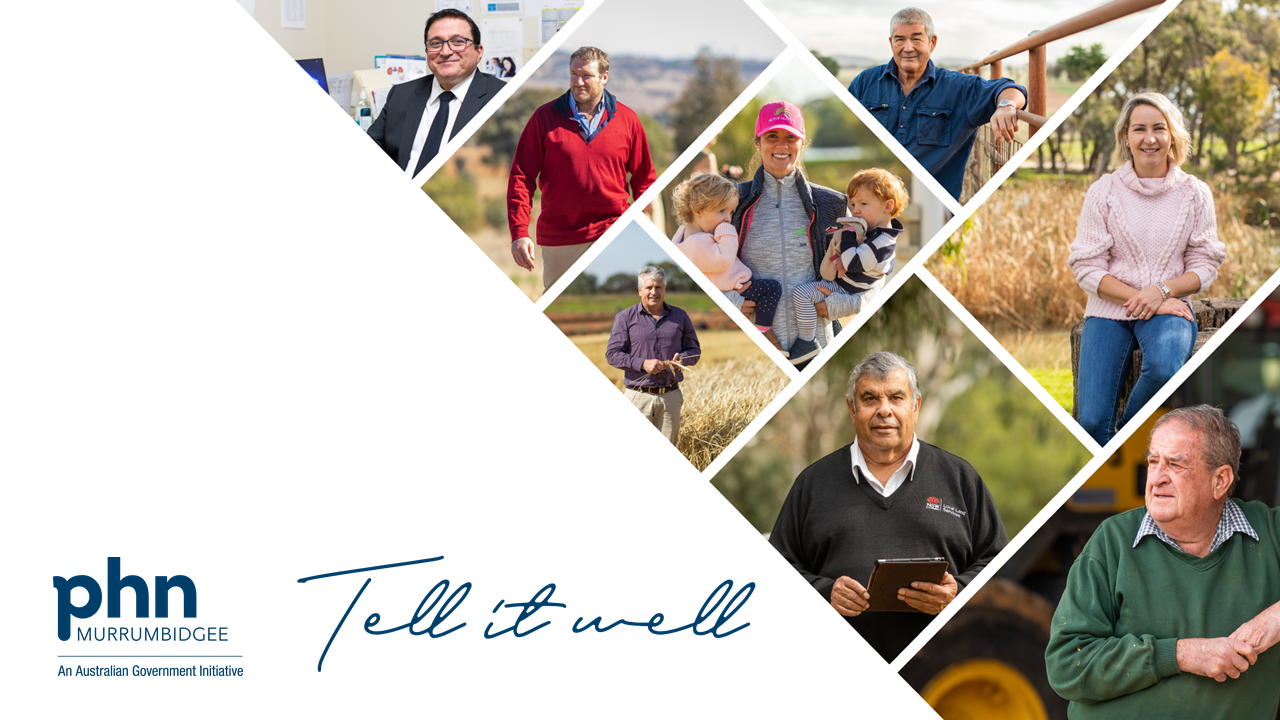Harnessing the power of story
Today, Murrumbidgee Primary Health Network (MPHN) launched its Tell it Well series of stories from people living in the region about their experiences with mental health, wellbeing and drought in an effort to support others by letting them know they are not alone on their journey.
The stories have been made possible with funding from the Australian Government’s ‘Empowering Communities’ initiative to support mental health and wellbeing in drought affected communities.
MPHN CEO said sharing stories can be a powerful source of change for someone living with mental health issues.
“Everyone has a story to share, in fact we already share stories every single day about our lives and experiences, with our family, friends and work colleagues. Stories connect us. They help build relationships and start conversations. It’s through stories we share passions, triumphs, hardships, meaning and purpose.
“These first eight stories aim to inspire people living with the impacts of drought by offering practical tips to support their mental health and wellbeing, and foster long-term resilience.
“We hope these stories will help start conversations and give people living across the Murrumbidgee who may be experiencing challenges with their mental health and wellbeing as a result of these drier times hope and encourage help seeking behaviours.
“I would like to thank each of our storytellers, Graeme Kruger, Ginny Stevens, Ross Edwards, Michael Gooden, Greg Packer, Katrina Myers, Dr Khaled Bardawil, and John Harper for their courage sharing your personal stories, insights and knowledge. Telling our stories will support people across our region to be well, or lead them onto a well life,” she said.
Storyteller and Executive Director of Ricegrowers’ Association of Australia Graeme Kruger said he was honoured to be part of the project.
“I’ve always lived and worked in rural communities, and have developed an immense respect for what farmers do and how they work in harmony with the environment and with nature – how they survive with the variable nature of what the climate dishes up for them,” Mr Kruger said.
“During times like this, the mettle and measure of society gets tested, but we are seeing many examples of people coming together to help and support each other – donations, drought relief initiatives, the Hay Runners – and I think the most important thing is that we encourage people to reach out to their neighbours and family and friends, because they’re not alone.
“I congratulate MPHN for their initiative on this important activity and definitely encourage people to read and share these stories far and wide – you never know who it may help,” he said.
If you or someone you know is experiencing a mental health emergency should call the Mental Health Line 1800 011 511, Lifeline 13 11 14 or call 000. Or to access the Head to Health website visit www.headtohealth.gov.au.
Read the stories here.
